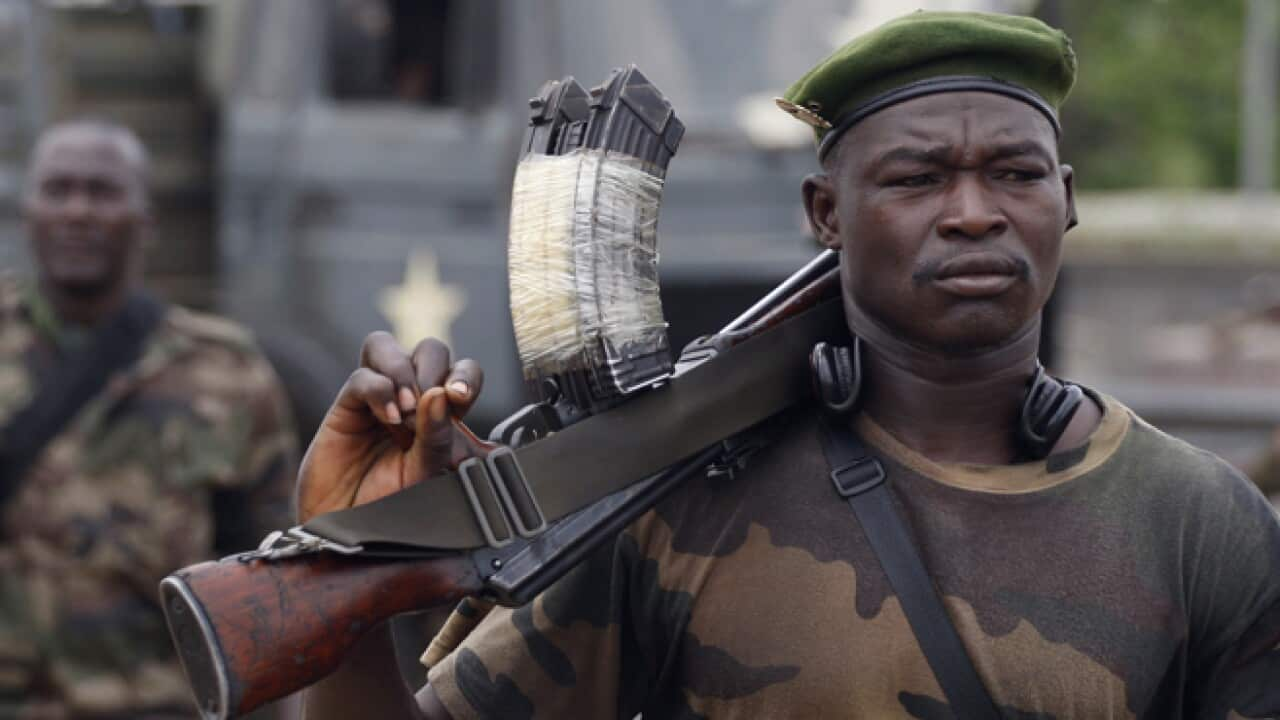Ouattara also said that mercenaries pose a threat to Liberia's presidential election this year and that he is seeking growing security cooperation with neighboring countries.
The call came as Amnesty International announced that more than half a million refugees fear return to their homeland, as militias loyal to the president continue to intimidate supporters of former president Gbagbo, the BBC reported.
Ouattara is to meet US President Barack Obama and the heads of the World Bank and International Monetary Fund in Washington on Friday to discuss rebuilding the world's biggest cocoa producer from the conflict which left thousands dead after the November 28 election.
The Ivory Coast leader, who was backed by the UN as winner of the election but had to fight incumbent Laurent Gbagbo to take office, would not say how much he would be seeking, telling a press conference only that his nation needs "a lot of money."
Ouattara said national reconciliation was his priority and vowed that alleged massacres and rights abuses by all sides would be investigated and punished.
"Our main task after reconciliation is reconstruction because the country has been destroyed," he told a press conference after meeting UN Secretary General Ban Ki-moon.
"In the past 10 years there was no investment except in public money to buy arms and ammunitions," which Ouattara called an "abuse" which had badly damaged the country's development.
"This year because of the post-electoral crisis our economy will drop by seven percent so this needs massive support," he said.
UP TO $25B NEEDED
According to some reports the new Ivory Coast government has estimated that it will need more than $25 billion of investment to rebuild the economy.
Ouattara said he had met the presidents of Ghana and Liberia in recent weeks to discuss security threats.
The Ivory Coast leader said that he and Liberia's President Ellen Johnson Sirleaf had agreed to boost border to security and to exchange information on mercenaries crossing from one country to another.
Liberia, devastated by its own civil war between 1989 and 2003, is to hold legislative and presidential elections in October.
Ouattara said the mercenaries "will become a greater threat for Liberia" and Ivory Coast, because of the elections.
He added that he had secured agreement from Ghana, where an estimated 15,000 Ivorians have sought refuge, that any found to have committed crimes would be sent back to Ivory Coast.
Despite allegations of rights abuses against his own loyalists, Ouattara stressed that he wanted reconciliation and that the country is embarked on "a new beginning."
"We want rule of law in (Ivory Coast), we want to protect citizens, all the people, we want to abide by human rights, this is very important for us, we don't want discrimination," he said.
"We have reconciliation under one track but the judicial system will do also its work on the other track and justice will be for everyone the same, there will be no distinction."
Ouattara said that his arch-rival Laurent Gbagbo and Gbagbo's wife Simone remained under detention at a presidential residence in the north of the country.
He said no decision had yet been taken on whether Gbagbo would face trial in Ivory Coast of before an international tribunal.
"Even if they were to be found guilty, dignity and consideration should be given to them because of their rank," Ouattara said.
Separately, the 15 member UN Security Council unanimously voted to renew the mandate of the UN mission in Ivory Coast for 12 months.

